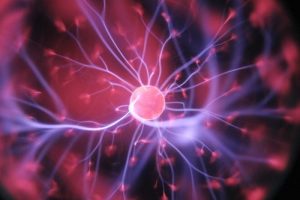The game development community is buzzing with excitement about the potential which the use of generative AI (artificial intelligence) and copyright of AI may have to the gaming industry. From creating immersive environments, generating character dialogue, storylines and even writing new code, GAI and AI will offer game developers new tools for creating engaging experiences. However, with most new technology, the legal landscape surrounding AI and remains murky, particularly regarding copyright protection in the United States.
The recent Executive Order on the Safe, Secure, and Trustworthy Development and Use of Artificial Intelligence (Executive Order 14110) has reignited the debate about the safety of AI and GAI and encourages various federal agencies, including the Copyright Office, to identify standards, tools, methods and practices for the use of AI and for the development of AI. The order specifically acknowledges that the use of AI raises important IP issues and directs the USPTO and the Copyright Office to provide recommendations on future protection and treatment of AI works and IP risks which the AI may pose.
This crucial questions for game developers:
1. Copyright of AI-generated content?
Under current US Copyright Office policy, AI-generated content cannot be copyrighted unless it contains sufficient human authorship. This means that the copyright of AI content, including game content created through AI-generated elements, without sufficient creative additions involving human creativity and ingenuity, are not eligible for copyright protection.
2. How much human input is required for copyright protection in AI?
There is no fixed amount of human input required to qualify for copyright protection. Determining the level of human creativity sufficient to qualify for copyright protection in an AI-generated work can be complex and case-specific. Factors like the level of control and direction exercised by the human author, the selection of parameters and data provided by the human or any additions or combinations selected by a Human may contribute to the relevant analysis.
3. What about derivative works?
Games often incorporate existing copyrighted material, such as music, sound effects, and visuals. If AI is used to modify or adapt existing copyrighted works, the new work may be protected as a derivative work assuming there is sufficient human creativity in the end result or in the selection or creation of the work. However, even if there is sufficient creativity for the derivative work to qualify for copyright protection, game developers should ensure that they have the necessary licenses and permissions to use the original or source material before incorporating it into their games.
4. What are the potential risks for game developers?
Using AI-generated content without proper legal safeguards can expose game developers to copyright infringement claims. These claims can be costly and time-consuming to defend, even if they are ultimately successful.
5. What can game developers do to protect themselves?
Game developers should take proactive steps to mitigate copyright risks. These steps include:
- Documenting the human creation process: Keep detailed records of the creative process involved in using AI tools, highlighting the human input and decision-making involved.
- Obtaining necessary licenses: If using copyrighted material in conjunction with AI-generated content, secure appropriate licenses from any copyright holder of the underlying content.
- Consulting with intellectual property lawyers: Contact a copyright attorney to understand your rights and obligations regarding copyright and AI-generated content.
Looking ahead:
The new Executive Order calls for the Department of Commerce to work with stakeholders, including the USPTO and US Copyright Office, to develop a comprehensive policy framework for AI and intellectual property. This framework is expected to address the uncertainties surrounding AI-generated content and provide much-needed clarity for game developers and other creators.
As AI technology continues to advance, so too will the legal landscape surrounding AI-generated content. Game developers must stay informed about the latest developments and take steps to protect themselves from copyright infringement risks. This will ensure that they can continue to harness the power of AI to innovate and create while respecting intellectual property rights.


